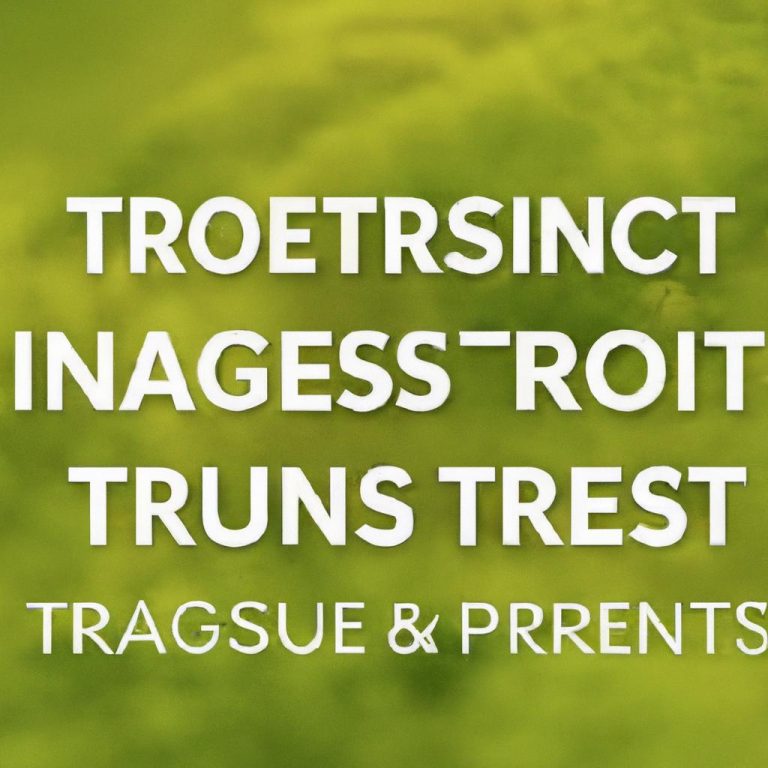Understanding Trusts:
In the realm of estate planning, trusts serve as a powerful tool for safeguarding assets, managing wealth, and providing for beneficiaries. However, the decision to create a trust is a nuanced one that necessitates a thorough assessment of one’s financial circumstances and future objectives. This article delves into the pros and cons of establishing a trust to assist individuals in determining its suitability for their needs.
Advantages of Trusts:
- Asset Protection: By placing assets within a separate legal entity, trusts offer a layer of protection against creditors and legal disputes.
- Bypassing Probate: Assets held in a trust can circumvent the probate process, saving time and expenses for beneficiaries.
- Enhanced Privacy: Unlike wills, trusts do not enter the public domain, ensuring confidentiality in estate matters.
- Control over Asset Distribution: Trusts enable individuals to specify the timing and manner in which assets are distributed to beneficiaries, granting greater control over their legacy.
- Tax Advantages: Certain types of trusts provide tax benefits that aid in reducing estate taxes and maximizing wealth transfer to heirs.
Potential Disadvantages of Trusts:
- Complexity: Establishing and managing a trust can be more intricate and costly compared to a simple will, necessitating legal guidance and ongoing oversight.
- Limited Control: Once assets are transferred to a trust, control may be relinquished to the trustee, who assumes legal ownership.
- Financial Costs: Initial expenses associated with trust creation, such as legal fees, as well as ongoing administrative costs, can be significant.
- Public Perception: Trusts have faced scrutiny in the media for being utilized by the affluent to evade taxes, potentially influencing how trust establishment is perceived.
Illustrative Scenarios:
Scenario 1: John and Mary
John and Mary, a retired couple with substantial assets, opted to establish a revocable living trust to avoid probate and provide for their children. Despite encountering initial complexities and costs, they found reassurance in knowing that their estate would be distributed as per their wishes without court intervention.
Scenario 2: Sarah and David
Sarah and David, a young couple with moderate assets, deliberated on setting up a trust but concluded that a simple will sufficed for their requirements. After weighing the pros and cons, they determined that the drawbacks of a trust outweighed the benefits in their case.
Professional Insight:
“As a legal professional specializing in trusts, I have witnessed firsthand the advantages that trusts can offer individuals and families. While not essential for everyone, trusts can serve as a valuable mechanism for safeguarding assets, mitigating taxes, and preserving one’s legacy for future generations.” – Jane Doe, Trust Attorney.
Final Thoughts:
In summary, trusts present a valuable estate planning option for many individuals, providing advantages such as asset protection, probate avoidance, and tax efficiencies. Nonetheless, it is crucial to carefully weigh the potential drawbacks, including complexity, expenses, and loss of control, when contemplating the necessity of trust for one’s specific circumstances. Seeking guidance from a reputable estate planning attorney can facilitate informed decision-making aligned with long-term objectives.
Trusts: Are They Worth the Investment? Exploring the Pros and Cons
Introduction
Trusts are versatile estate planning tools that can provide numerous benefits for individuals looking to protect and manage their assets. However, trusts can also be complex and expensive to set up, leading many people to wonder if they are truly worth the investment. In this article, we will explore the pros and cons of trusts to help you determine if they are the right option for your financial situation.
What is a Trust?
A trust is a legal arrangement where one party, known as the trustee, holds assets on behalf of another party, known as the beneficiary. Trusts can be used to manage and distribute assets according to specific instructions set forth by the grantor, the person who establishes the trust. There are several types of trusts, each serving different purposes and offering various benefits.
The Pros of Trusts
1. Avoiding Probate
One of the main benefits of trusts is that they can help your estate avoid probate, the court-supervised process of distributing assets after someone passes away. By placing assets in a trust, they can be transferred to beneficiaries without going through probate, which can save time and money.
2. Privacy
Unlike wills, which become public records during probate, trusts offer a level of privacy since they are not subject to probate. This means that the details of your estate plan, including the assets you own and who will inherit them, can remain confidential.
3. Asset Protection
Some types of trusts, such as irrevocable trusts, can offer asset protection benefits by shielding assets from creditors and lawsuits. This can help ensure that your assets are preserved for your intended beneficiaries and are not at risk of being seized by outside parties.
4. Control Over Distribution
With a trust, you can specify how and when your assets will be distributed to beneficiaries. This level of control can be beneficial if you have specific wishes for how your assets should be managed and passed on to future generations.
5. Tax Benefits
Certain types of trusts, such as charitable remainder trusts, can offer tax benefits by reducing estate taxes and income taxes. By strategically using trusts in your estate plan, you may be able to minimize the tax burden on your heirs.
The Cons of Trusts
1. Cost
Setting up a trust can be expensive, as it often requires the assistance of an attorney and other professionals to ensure it is properly drafted and executed. There are also ongoing fees associated with maintaining a trust, such as trustee fees and administrative costs.
2. Complexity
Trusts can be complex legal arrangements that require careful planning and execution. Trying to navigate the intricacies of trusts on your own can lead to mistakes that could have serious consequences for your estate plan.
3. Lack of Flexibility
Once assets are placed in a trust, they are subject to the terms of the trust agreement. This lack of flexibility can be a drawback if your financial situation or estate planning goals change over time and you are unable to modify the terms of the trust easily.
4. Funding Issues
In order for a trust to be effective, assets must be properly transferred into the trust. Failure to fund a trust correctly can render it useless and defeat the purpose of establishing one in the first place.
Case Studies
John and Sarah, a married couple with young children, decided to set up a revocable living trust to ensure their assets would be transferred to their children in the event of their deaths. By avoiding probate and maintaining privacy, the trust provided peace of mind, knowing their children would be cared for financially.
On the other hand, Emma, a single professional with a simple estate, found that the cost and complexity of setting up a trust outweighed the potential benefits. Instead, she opted for a will and beneficiary designations on her accounts to ensure her assets would pass to her loved ones without the need for a trust.
Conclusion
Trusts can be valuable tools for estate planning, offering benefits such as privacy, asset protection, and tax savings. However, they are not suitable for everyone and may not be worth the investment for individuals with simpler financial situations. It is essential to carefully weigh the pros and cons of trusts and consult with a professional to determine the best estate planning strategy for your specific needs.
The post Trusts: Are They Worth the Investment? Exploring the Pros and Cons appeared first on lawyer.bet.




